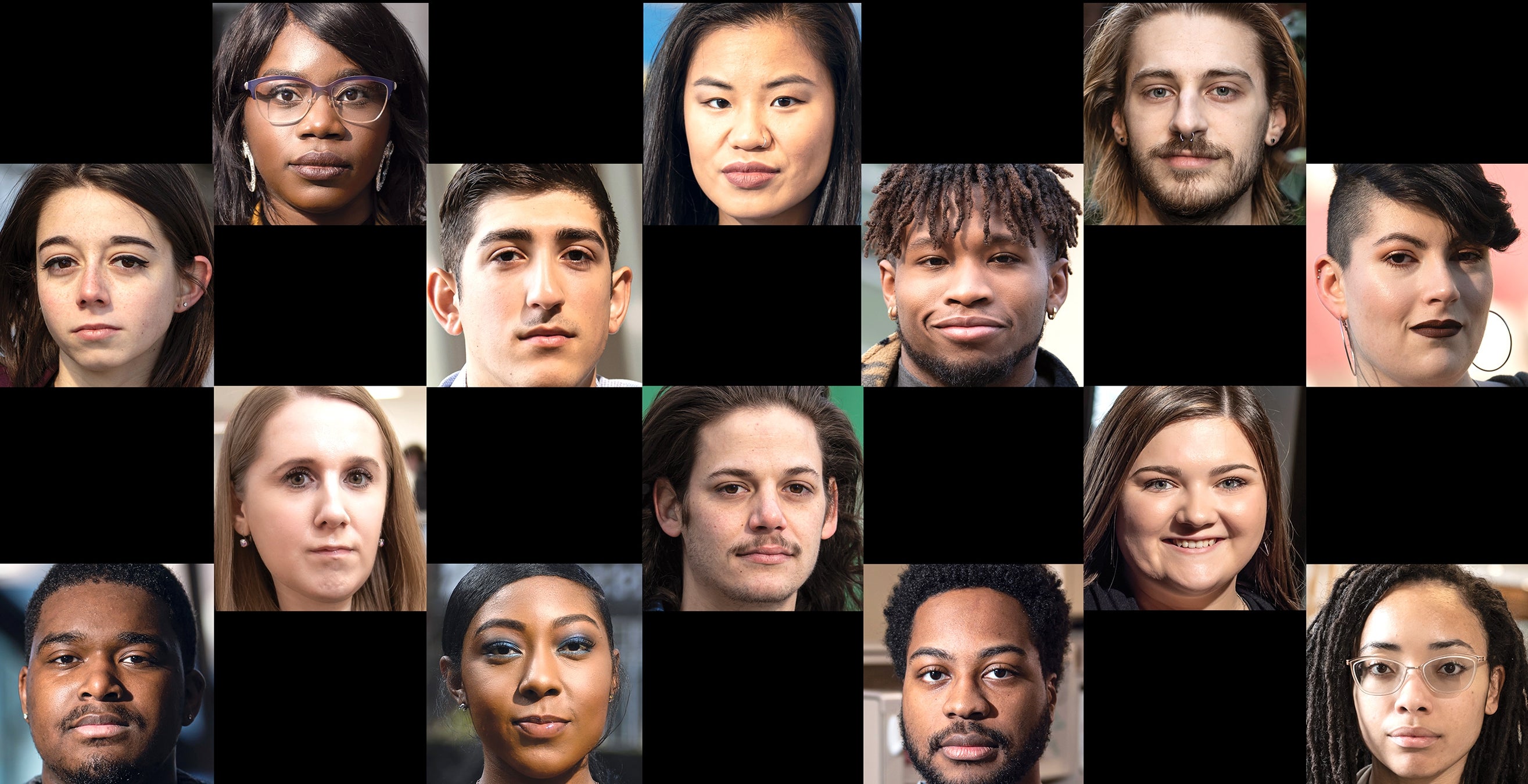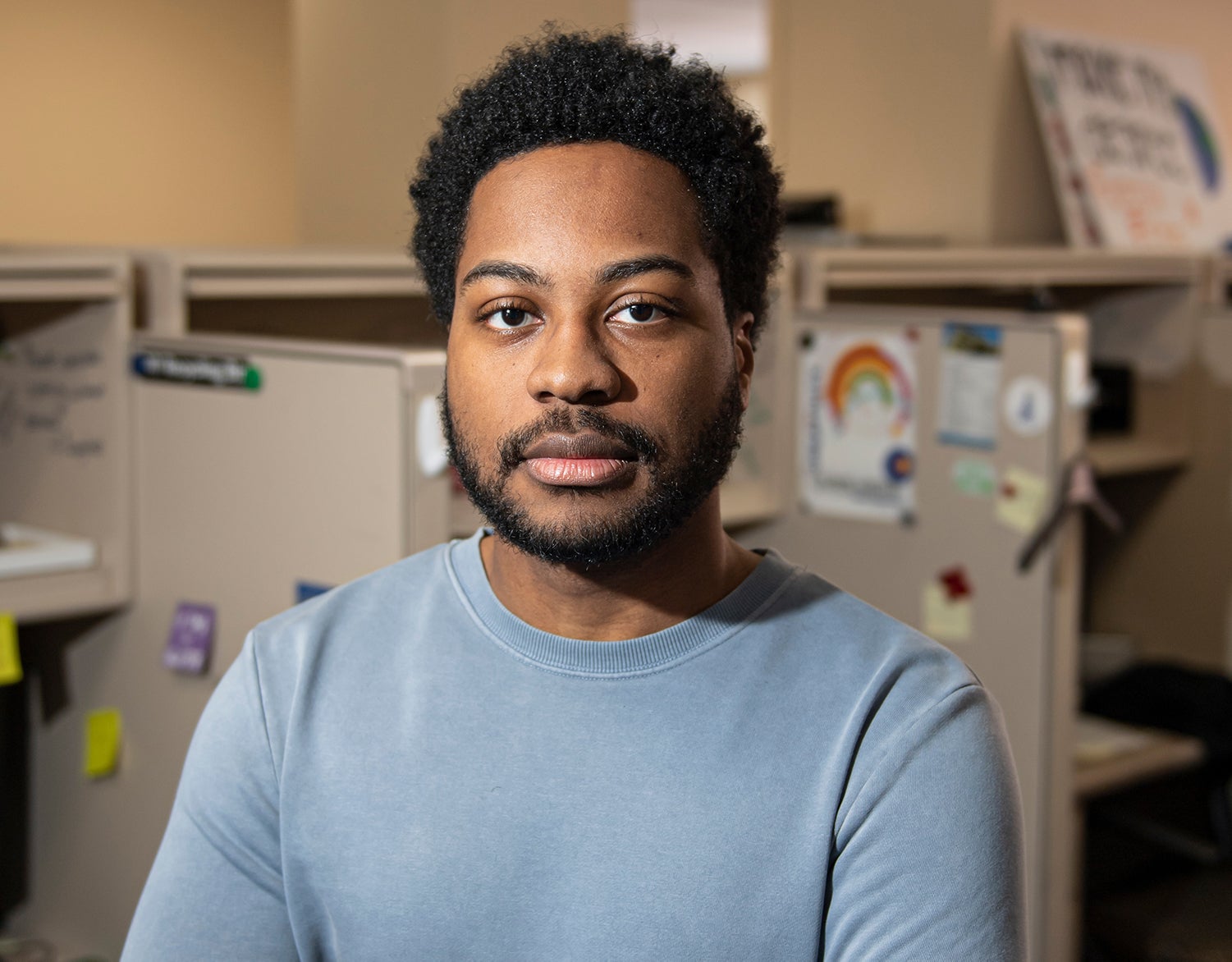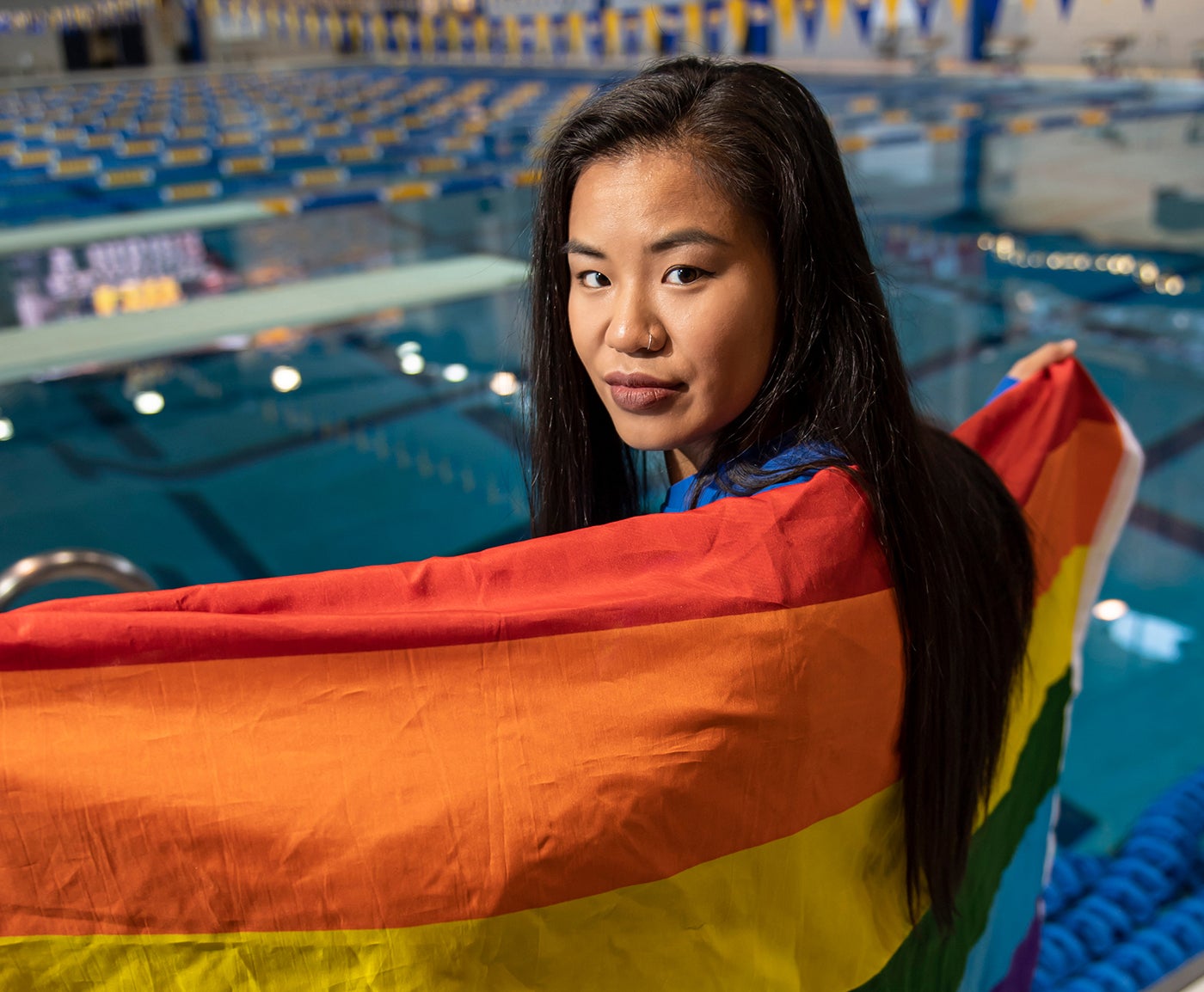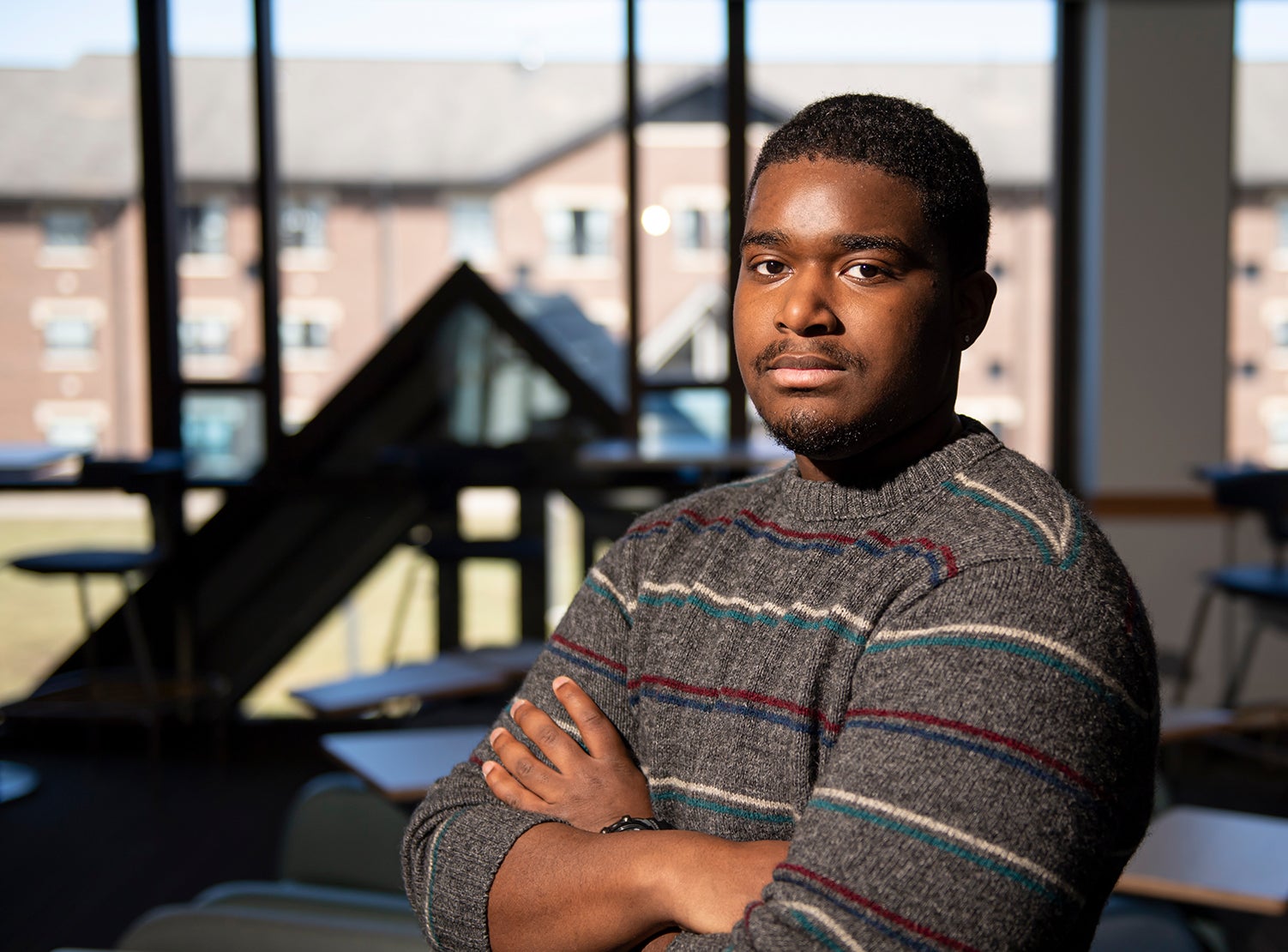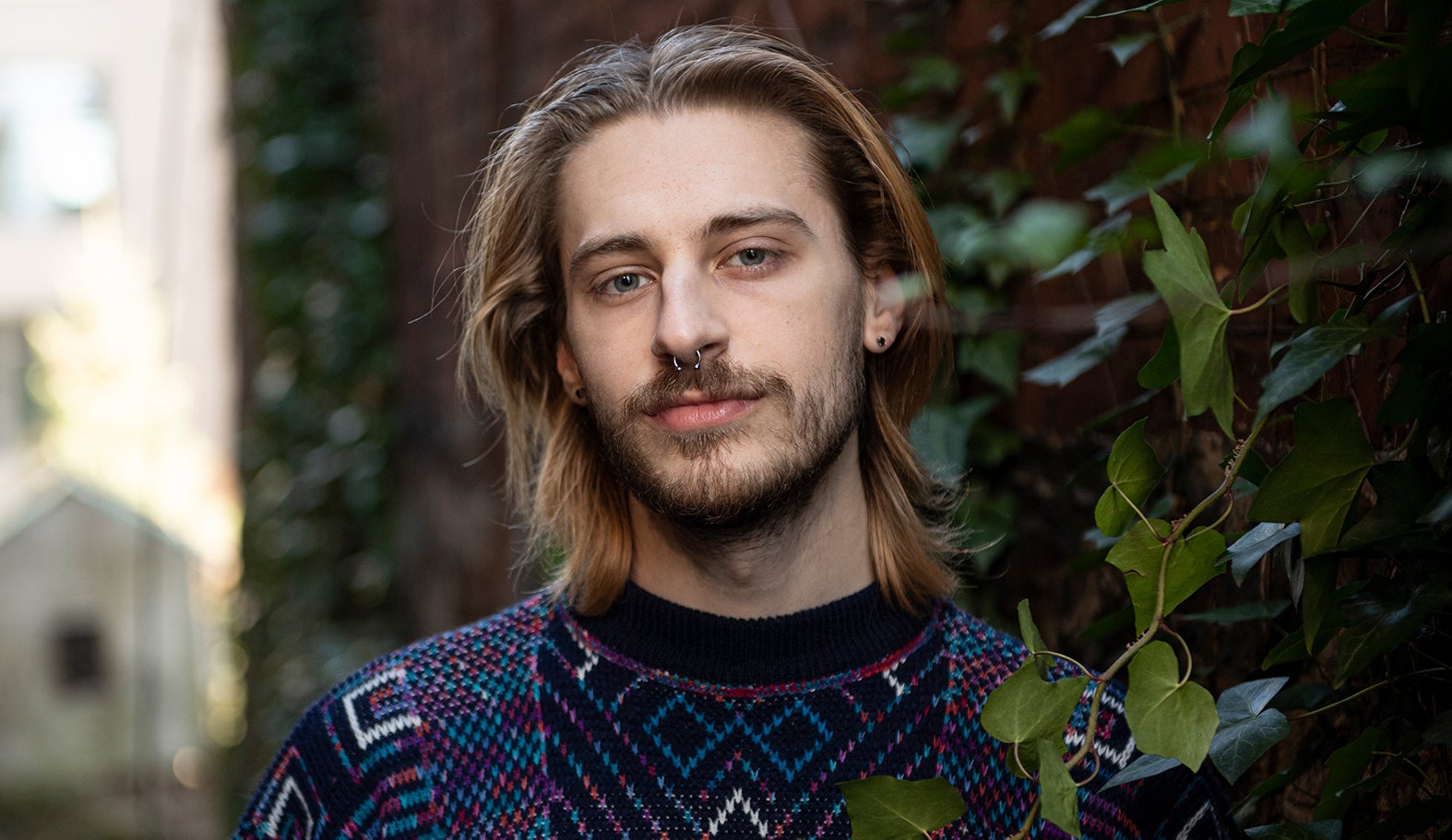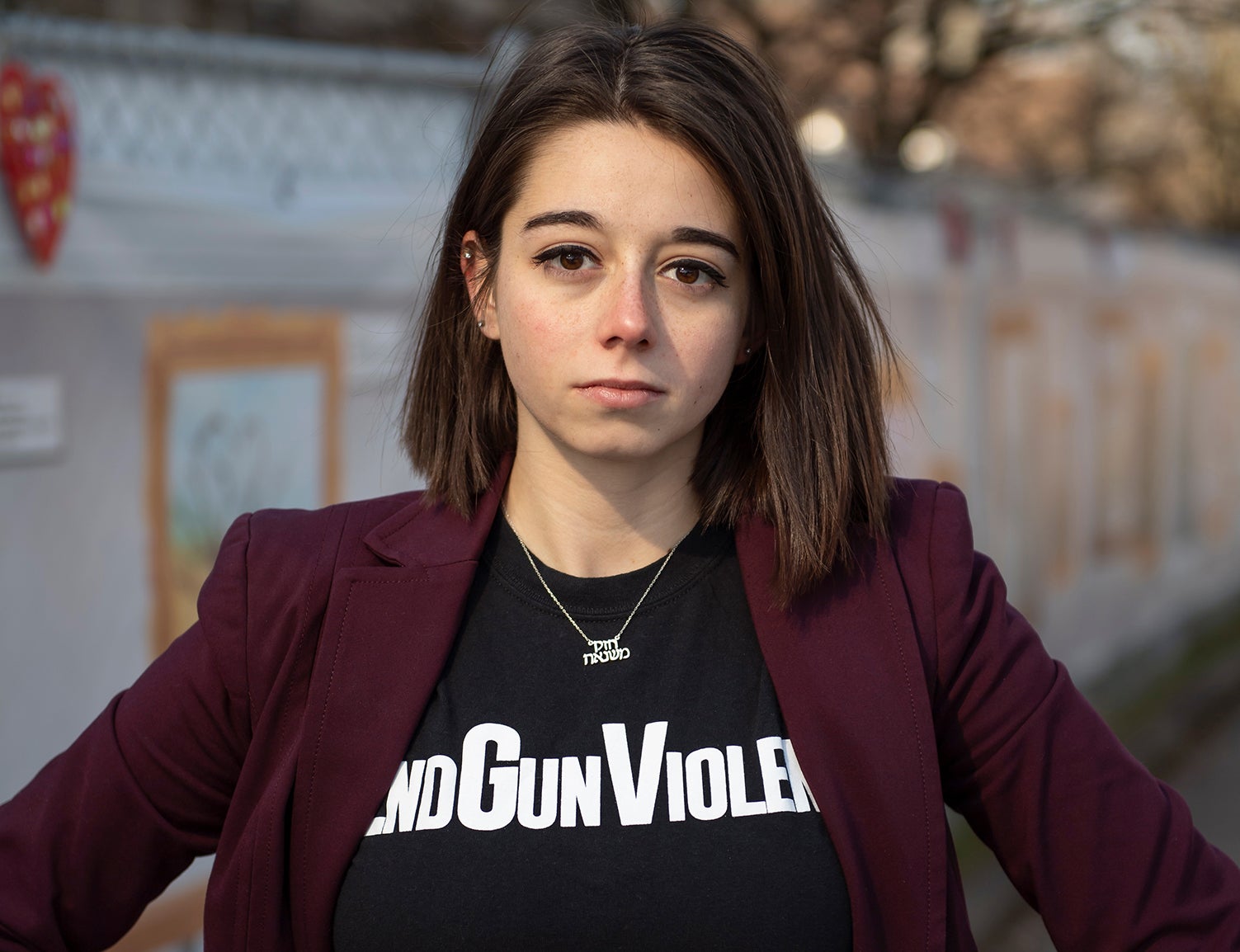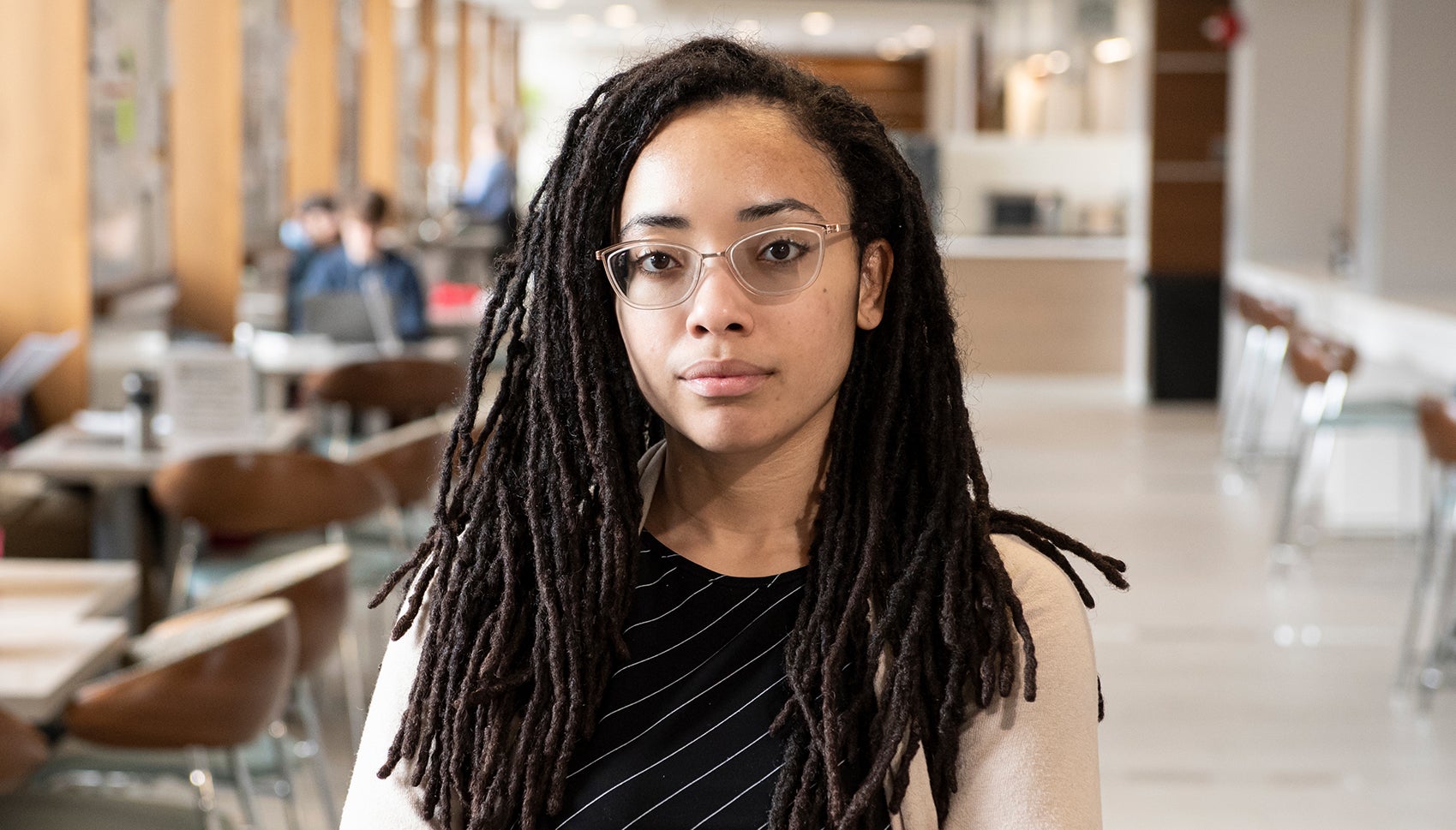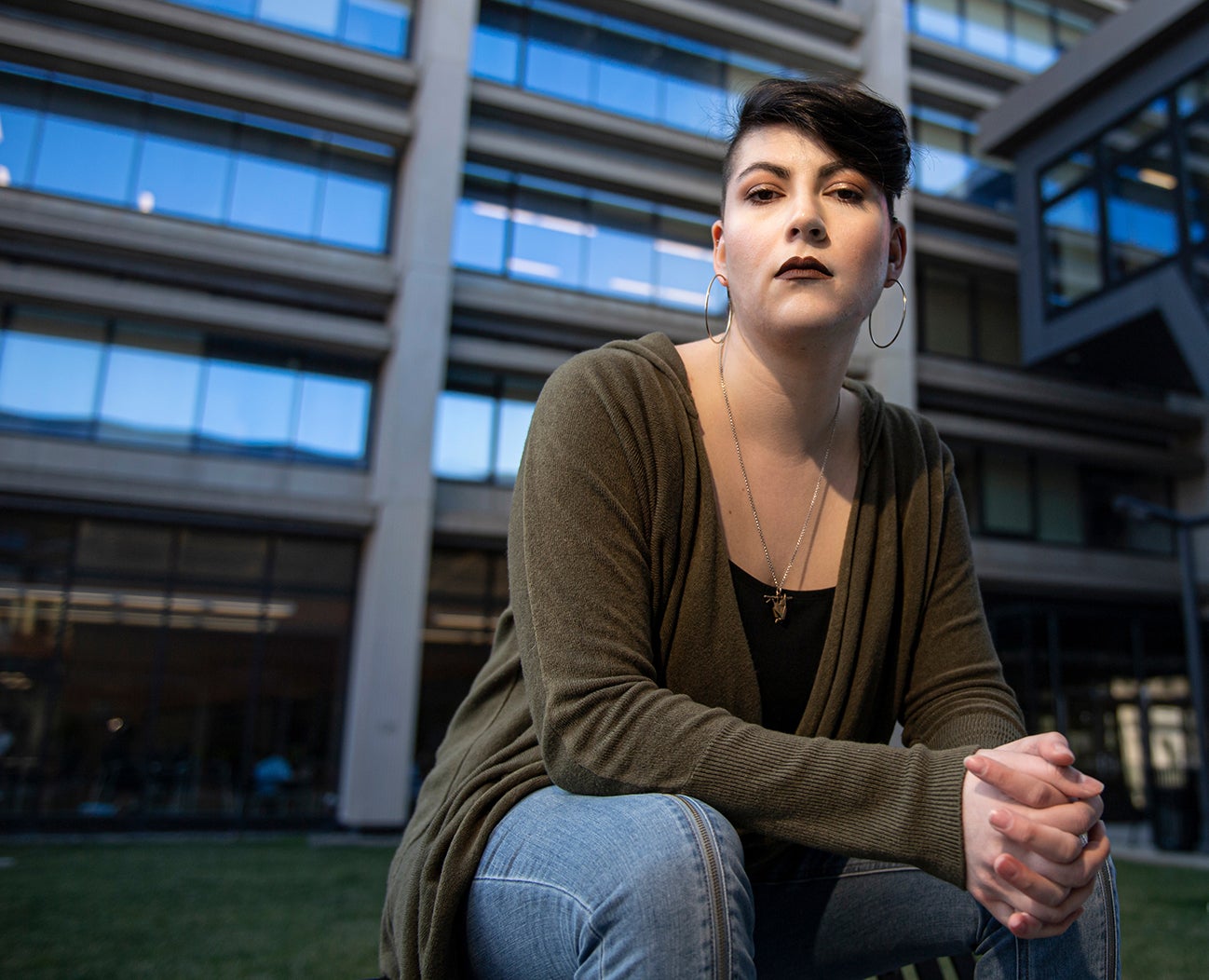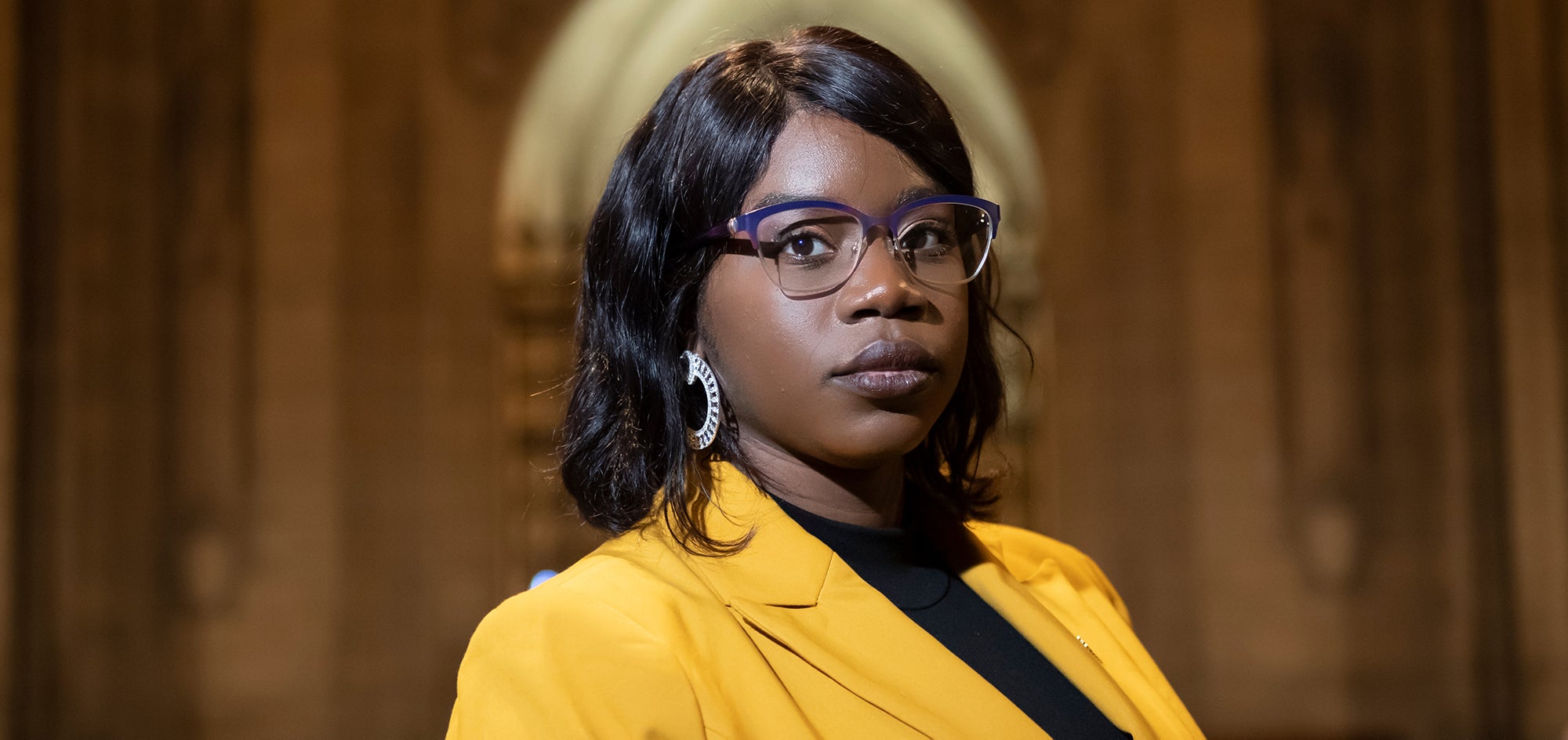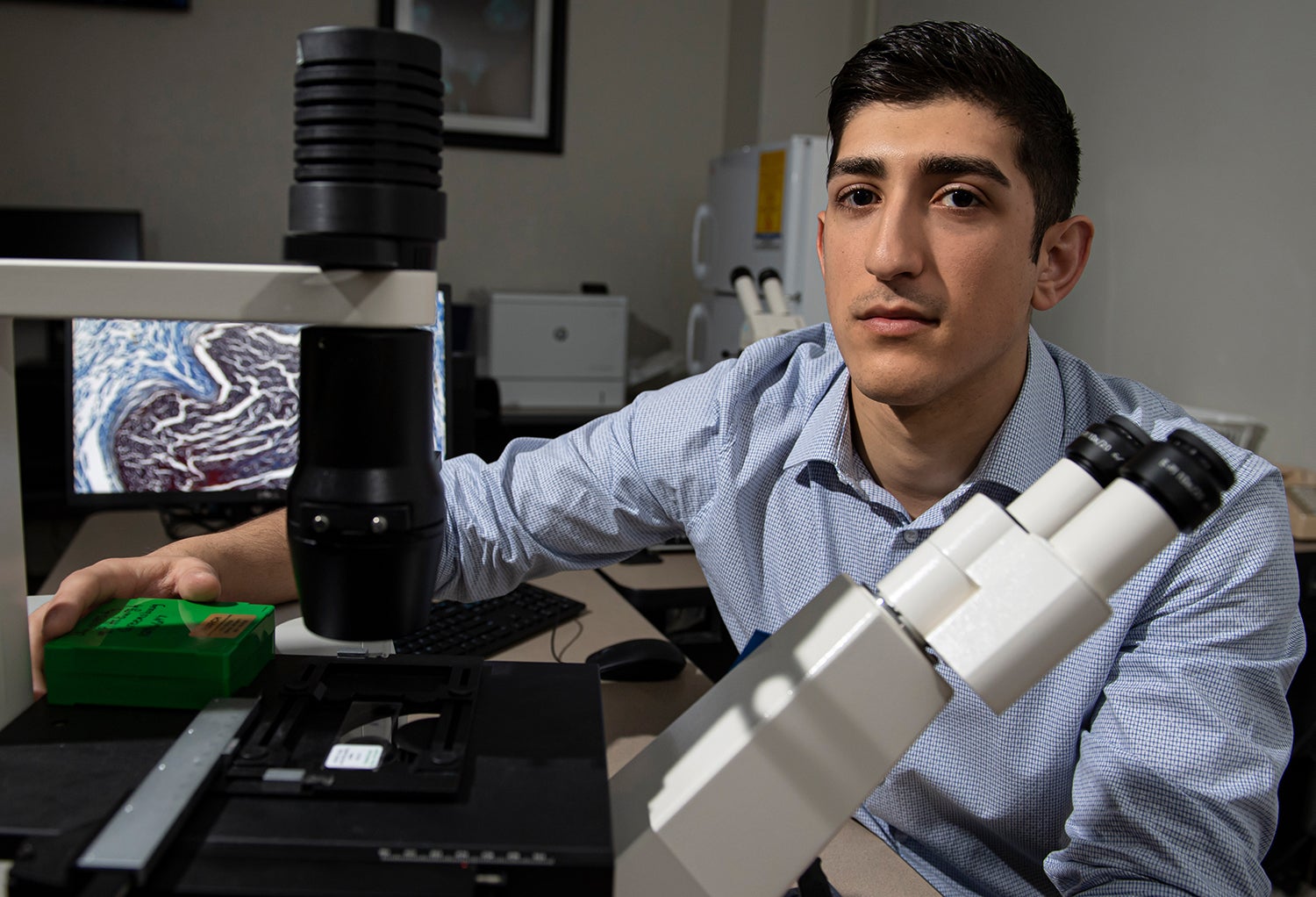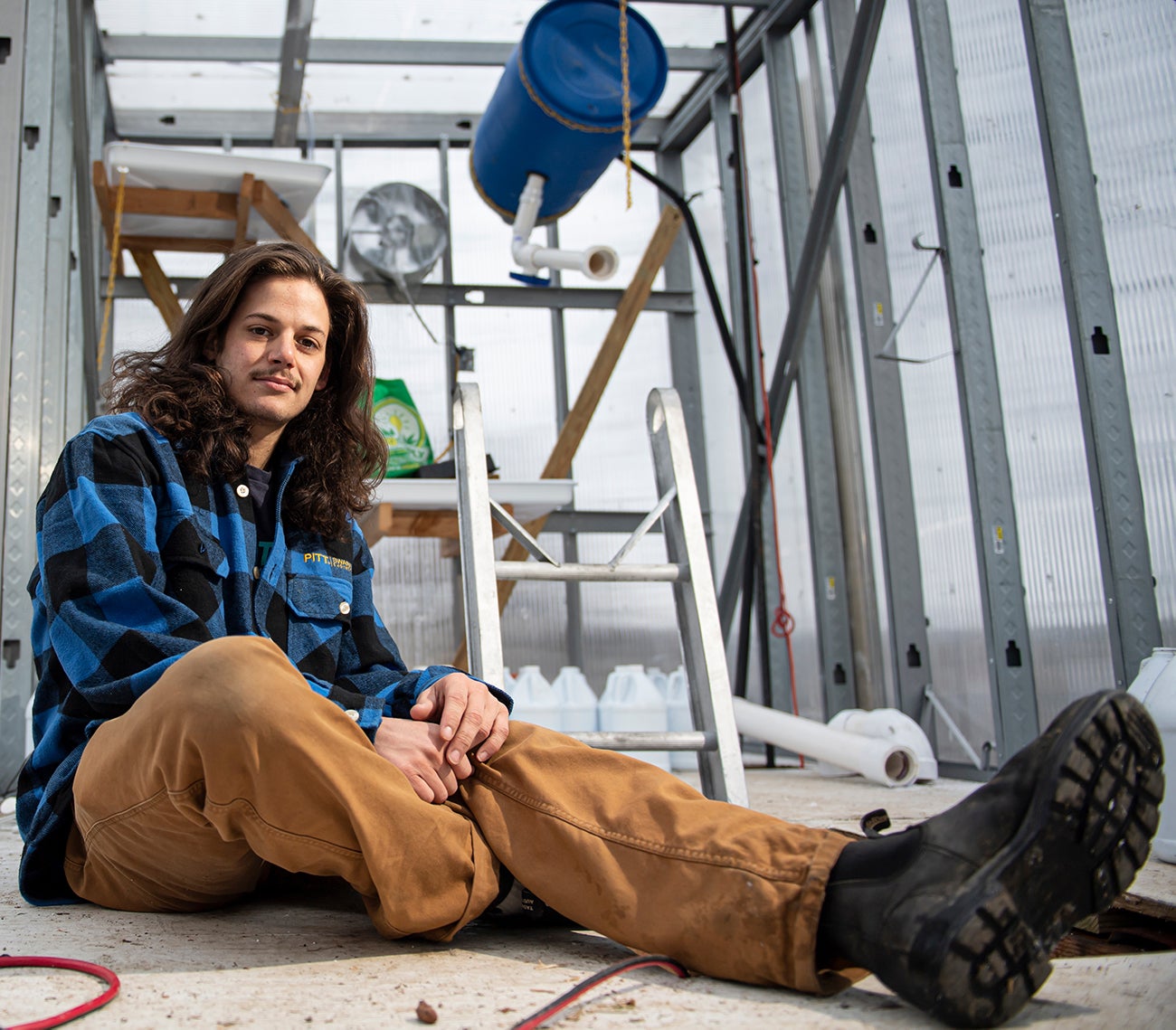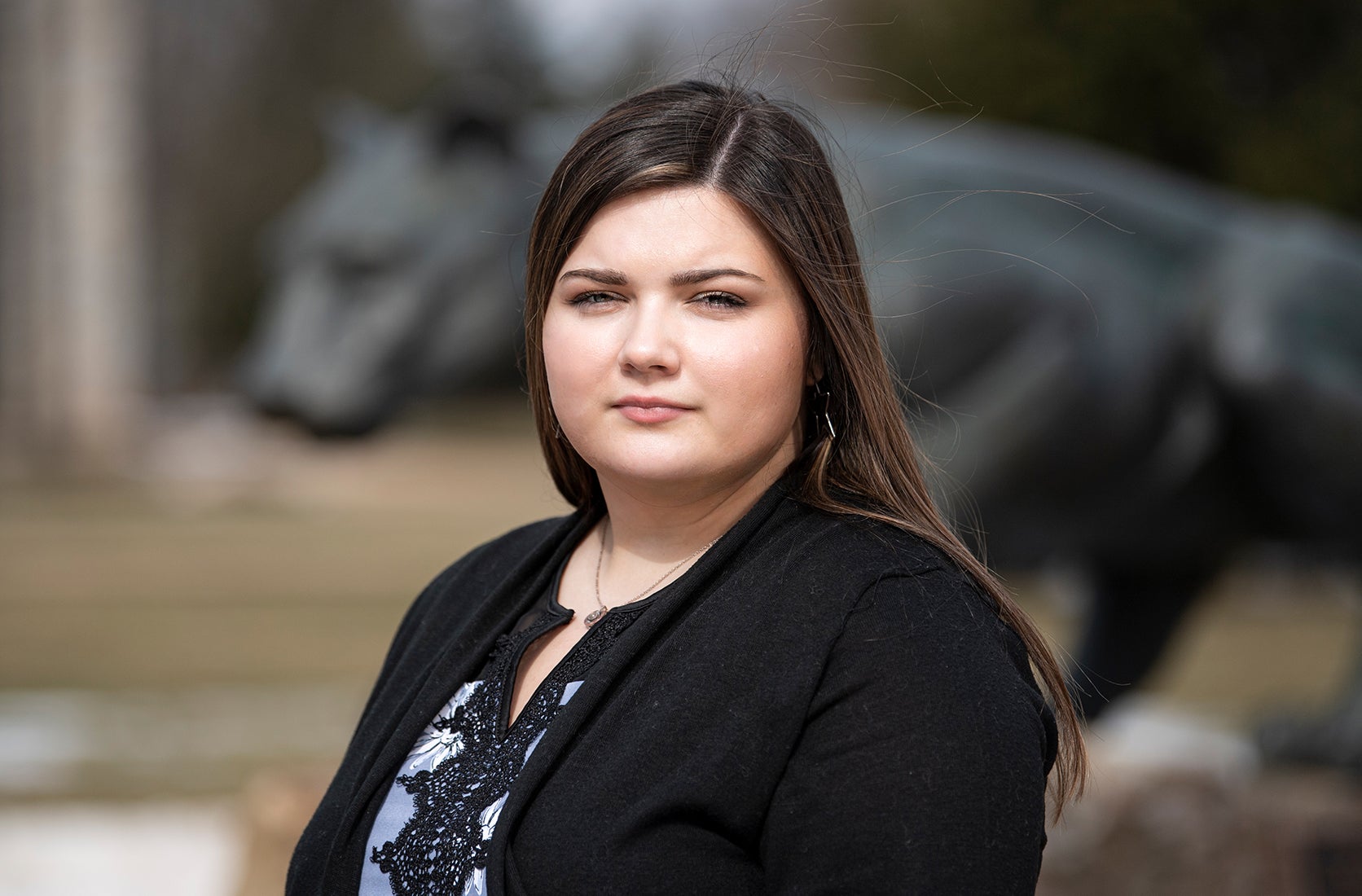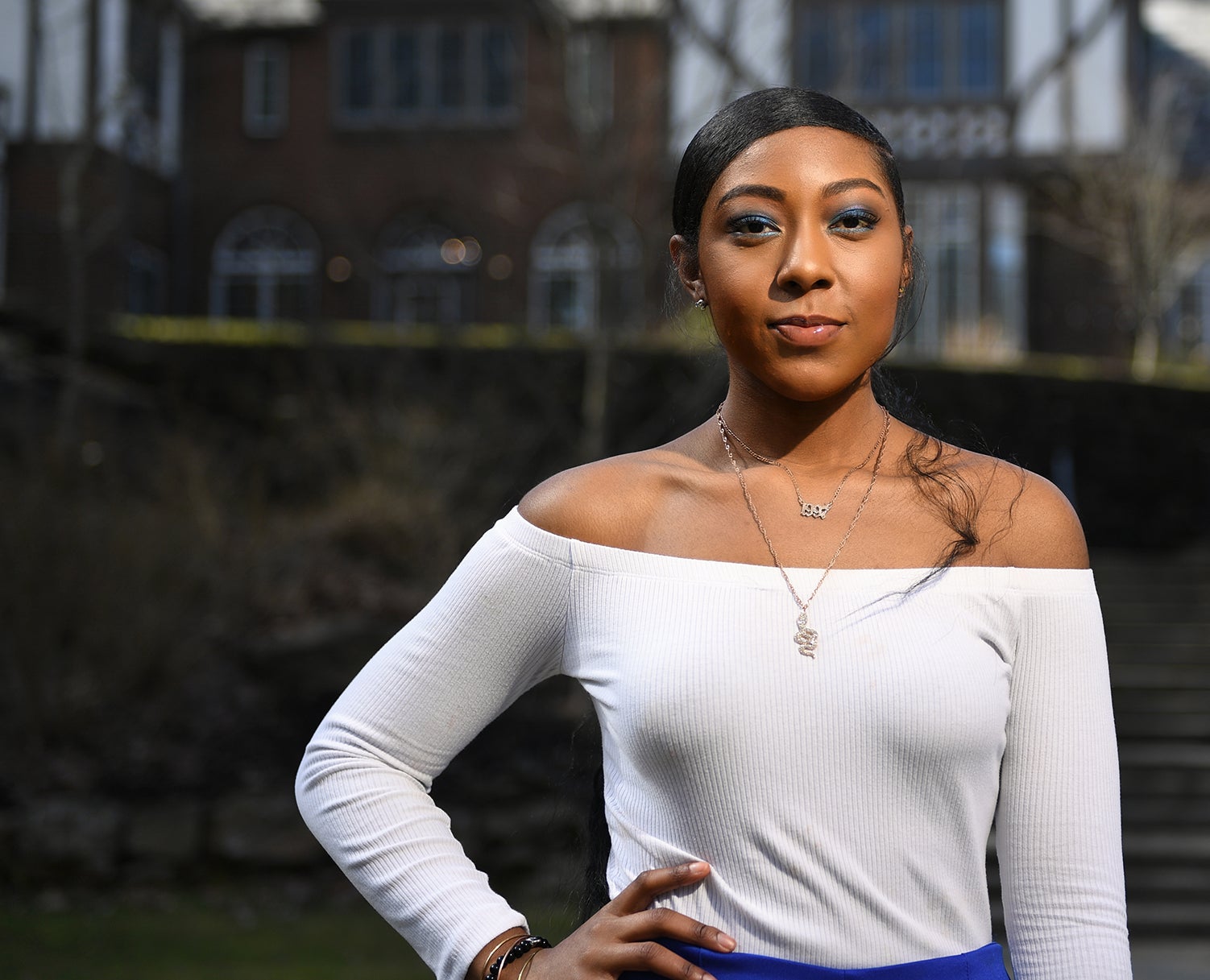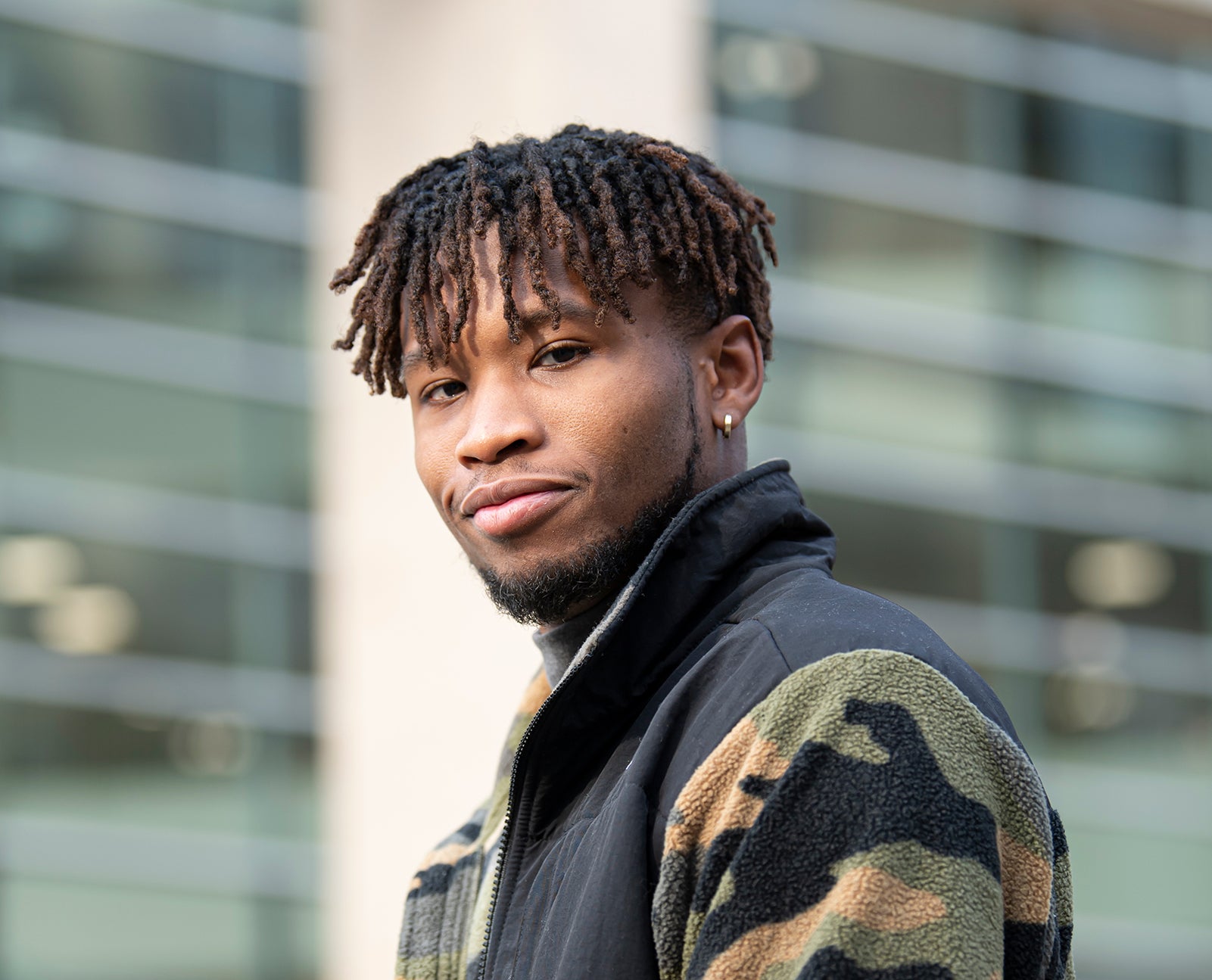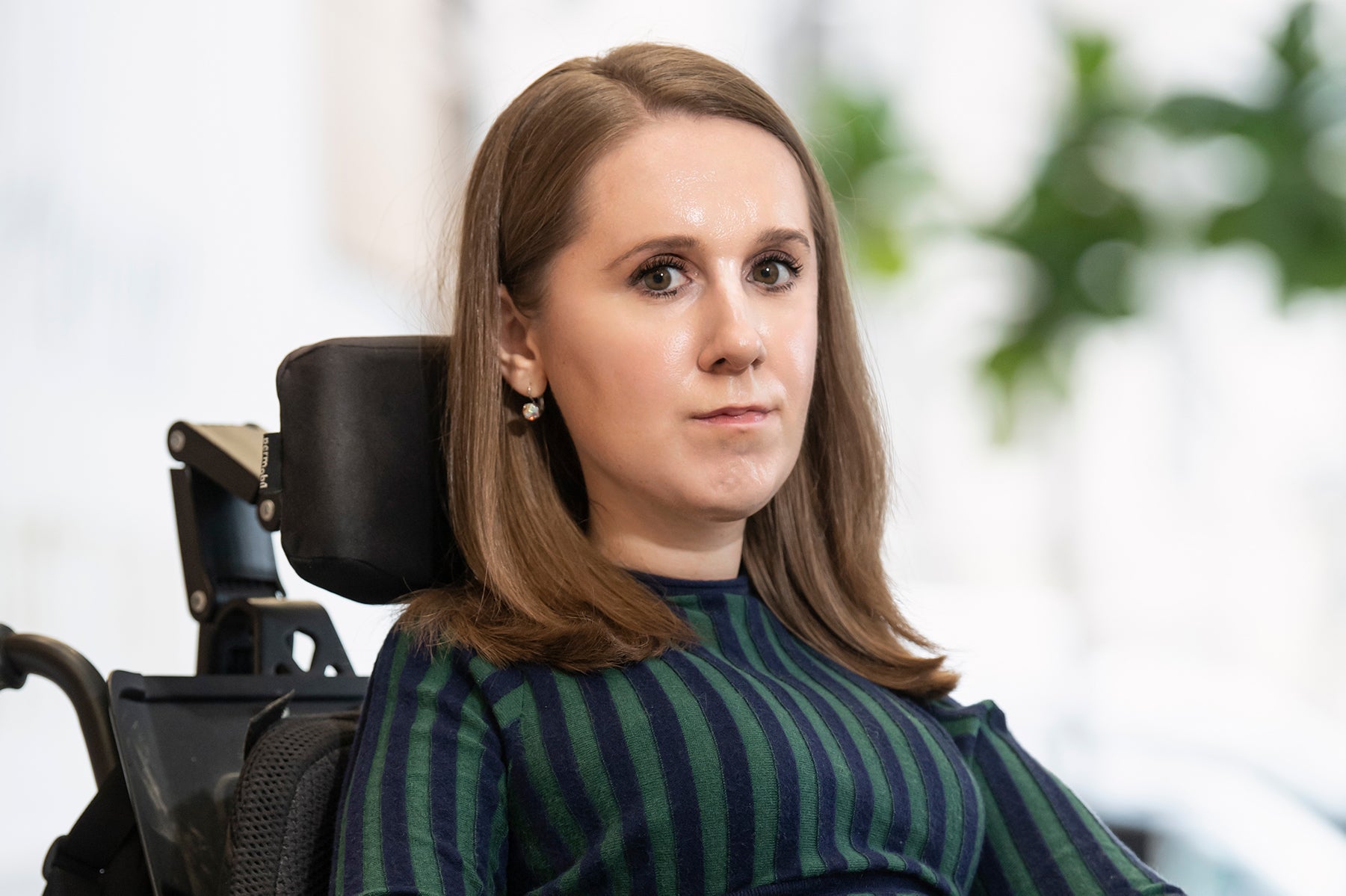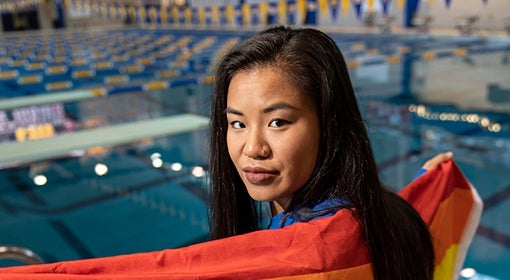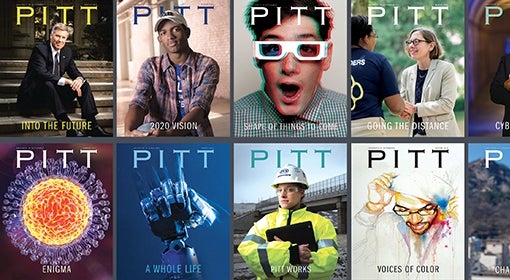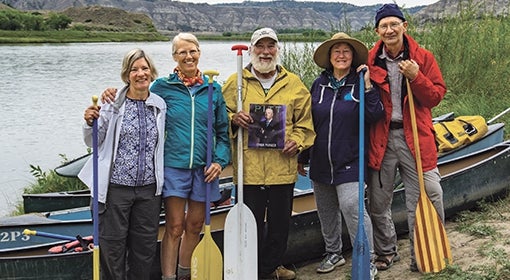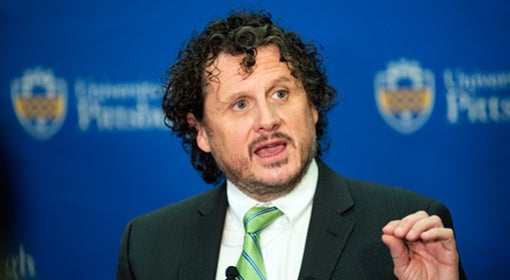These days, it’s easy to look at the world and see only its many complex problems. Health crises. Gun violence. Intolerance. Global warming. It can feel overwhelming, exasperating—even scary.
Fortunately, there are people who refuse to be paralyzed into inaction—and Pitt’s student body is full of them. Although their causes are different, they are united by their passion, purpose and pioneering ideas to inspire change. Through their unselfish efforts, they’re helping to shape the evolution of beliefs, values and behaviors for the campus community and beyond.
Meet just a few of the University’s student leaders who are already beginning to make waves in the world. And keep your eyes open—these individuals and their many peers have only just begun.
Zechariah Brown, A&S ’20
The immediate past president of Pitt’s Student Government Board (SGB), Brown grew up in Montclair, New Jersey, and majored in political science.
Inspiration: His push for achievement came from his parents, immigrants from the West Indies. They taught him to use his voice and not be afraid of uncomfortable conversations. He got the government bug by participating in his high school’s Civics and Government Institute, which taught political philosophy and the U.S. Constitution via history, government and literature classes. He participated in Model United Nations and Model Congress, where he learned the foundations of organizing.
Impact: As Pitt’s SGB president, he promoted the concerns, interests, needs and welfare of Pitt’s 18,000 undergraduate students. One mission of his leadership was to provide space for his peers to discuss issues, especially those that might be divisive and challenging. He worked to provide awareness and advocacy on food insecurity, ride-share safety, women’s empowerment and mental health resources, among other issues.
When we give students a voice, we increase student awareness and visibility of an issue. When you listen to student voices, it’s how you know something is a problem or becoming a problem.
Lisa Coe, A&S ’20
An outspoken advocate for LGBTQ rights, Coe, from Bridgewater, New Jersey, studied microbiology and was a competitive member of Pitt’s swimming and diving team.
Inspiration: She took a gender studies and composition class as a first-year Pitt student, which emboldened her to grapple with her identity, helping her to grow and accept all parts of herself as a queer Asian woman.
Impact: Coe came out to her parents in her junior year and began to publicly reveal her identity to others as well. At the same time, she became more vocal, confronting stigma from athletes and others that is hurtful to LGBTQ people and advocating for diverse representation in sports and beyond. In the past year, she served on an inaugural Pitt Athletics subcommittee on diversity and inclusion and participated in #NCAAInclusion, an annual forum that brings together higher education and intercollegiate athletics leaders and student-athletes who are passionate about improving their educational and professional environments.
What I’m doing is opening doors for others. It’s all about making others feel like they belong.
Miles Davis-Matthews, Pitt-Bradford A&S ’21
Growing up in Washington, D.C., Davis-Matthews founded his high school’s first Pride Alliance. He continues that activism at Pitt-Bradford, where he advocates for LGBTQ issues as president of the campus’s Pride Alliance while majoring in international affairs and political science and minoring in economics.
Inspiration: A best friend encouraged him to be empathetic and socially conscious. He also looks up to GLAAD leader Tiq Milan and Devin Michael Lowe, founder of the Black Trans Travel Fund.
Impact: At Pitt-Bradford, Davis-Matthews, who is a transgender man, works with faculty, community, staff and students to talk about privilege, race and queerness. Through the Pride Alliance, he helps to host a Pride Night, participates in compassion training and consults with other organizations about the factors influencing diversity and inclusion on campus. Recently, he helped effect change on an even wider scale when he served as an intern at the National Action Network in Washington, D.C., where he assisted with special research projects, focusing in part on LGBTQ legislation and advocacy.
I’ve tried—and people have assisted me—to create a space in which people feel comfortable being themselves.
Zachary Delaney, A&S ’21
Delaney, who grew up in Gallitzin, Pennsylvania, has supported underserved preschools, is a co-director of the Student Office of Sustainability (SOOS) and works with the Office of PittServes. He’s an environmental science major with minors in chemistry and French.
Inspiration: He began his studies as a chemistry major, but while serving with Jumpstart—an early education program for children in under-resourced communities—he became aware of the opportunity gaps that exist in Pittsburgh. That sparked his interest in social and environmental justice, shifting his focus to sustainability, which covers an array of community projects and activism.
Impact: In addition to PittServes, Jumpstart and SOOS, where he organizes zero-waste events across campus, he also coordinates with the Student Government Board, the administration and others on sustainable initiatives. He's proud of his work to reduce the University's purchasing of plastic bottles, and his collaboration on Zero Waste Period, a project that aims to provide free, reusable menstrual products on campus.
I’m drawn to serving people and causes facing adversity. It’s what influenced all of my academic decisions.
Kathryn Fleisher, A&S ’21
A double major in politics and philosophy and gender, sexuality and women’s studies from suburban Cleveland, Fleisher is the founder of Not My Generation, a national organization for young people striving to end gun violence.
Inspiration: In high school, a stint as a national leader in the Reform Jewish Youth Movement solidified her interest in social justice. In 2018, when a gunman killed 17 people at Stoneman Douglas High School in Parkland, Fla., she organized a group to participate in the national March for Our Lives protest. Later that year, after the deadly shooting at Pittsburgh’s Tree of Life synagogue, she decided that she needed to do more. She founded Not My Generation soon after.
Impact: Fleisher, who was recently awarded a prestigious national Harry S. Truman Scholarship, has thrown herself into activism, fundraising and advocacy for localized, multifaceted efforts to prevent all forms of gun violence. Coalitions for the organization have already been established in cities and communities in 10 other states. Last fall, they held their first summit in Washington, D.C., attended by more than 125 youth activists.
If we don’t do this, lives will continue to be at stake. Black and brown lives. Jewish lives. Muslim lives. LGBTQ lives. I believe we have a responsibility to do something about it.
India Hunter, EDUC ’16, SOC WK ’20G, GSPH ’20
Hailing from Dayton, Ohio, Hunter first studied exercise science before realizing that community organization and outreach are her passions. She recently earned a dual master’s degree from the School of Social Work and the Graduate School of Public Health.
Inspiration: Early on, she was inspired by family conversations about police brutality and economic inequality. Her grandmother, a German immigrant, modeled helping others, serving as an activist, mentor and community organizer for neighborhood improvements.
Impact: Hunter believes that you can’t help people if you don’t understand them. It’s a lesson in empathy she learned while working at a community health center with Jeannette South-Paul, a UPMC physician and pioneer in maternal and children’s health care. As the immediate past president of the Minority Student Organization in Public Health, Hunter helped to promote the welfare and interests of underrepresented Pitt Public Health students. She also mentors African American students at local schools as part of a larger goal to help improve policies and programs that are beneficial to the public and the mental health of Black women and children in Pittsburgh.
If we don’t educate our communities, if we don’t advocate for our communities, the cycle of systematic oppression is going to keep perpetuating itself and get worse.
Kirsten Lipsky, ENGR ’22
A student of environmental engineering and creative writing from Broomall, Pennsylvania, Lipsky is actively engaged in efforts to fight sexual assault on campuses and beyond and was recently named to the Chancellor’s Advisory Council on the Prevention of Sexual Misconduct.
Inspiration: Her parents, both entrepreneurs, told her to follow her passion, which helped her find confidence and her voice.
Impact: As a survivor of sexual assault, Lipsky has found healing and empowerment in efforts to address related issues affecting thousands of people every year. In her first year at Pitt, she was drawn to clubs that advocated for comprehensive sexual education and health. Soon, she became a peer educator for the campus organization SAFE (Sexual Assault Facilitation and Education), through which she presents workshops and presentations three to six times a month on consent, healthy relationships and bystander training.
Assault doesn’t always happen in creepy, dark places. Sometimes people don’t even know what consent looks like, and I do believe there are people who accidentally assault. If we give people knowledge and resources, it can change the way people navigate relationships so that they don’t become a headline.
Anette Nance, SOC WK ’20G
Raised in Auburn, Georgia, Nance is a Marine Corps veteran who just earned a master’s degree in social work. She’s the immediate past president of the Student Veterans of Pittsburgh (SVAPgh), also known as Pitt Vets, and she was a 2020 finalist for student veteran of the year by Student Veterans of America.
Inspiration: She watched her mother, a Haitian immigrant, sacrifice to make a better life and was later mentored by a female U.S. Marine Corps gunnery sergeant. They taught her to work hard and to care about the people she was leading.
Impact: During her SVAPgh leadership, Nance strove to create community among Pitt’s 500 student-veterans and their families. She facilitated monthly social events, organized voter registration, planned professional development activities and connected the group to national organizations. Her goal: to help better integrate veterans into campus and community life so that more people can see the many ways veterans can contribute to the world.
It’s important to be aware that veterans are on campus; at the end of the day, we have to understand that the people who served the nation are people who you can talk to and learn from.
George Panagis, Pitt-Greensburg A&S ’20
An aspiring surgeon from Greensburg, Pennsylvania, Panagis majored in biological science and makes time in his schedule to serve as an emergency medicine technician (EMT), a mentor through Big Brothers Big Sisters and a research assistant in stem cell and regenerative medicine in Pitt’s Department of Plastic Surgery.
Inspiration: With a grandfather as a physicist and a father as an engineer, he was taught from an early age to find beauty in science. But when he became a certified EMT during his senior year of high school, Panagis was enlightened to the beautiful human side of science and the gift of being able to help people in medical need.
Impact: He believes in the power of leading by example—and instruction. Over the past two years as a CPR instructor, he’s assisted more than 100 Pitt students in becoming certified in the life-saving practice. His “Love Your Heart with Food and Art” initiative educated the Greensburg community on heart health, nudging students toward healthier snacks. And, on and off campus, he mentored fellow college students and local elementary school children.
I think it's just an awesome opportunity to help out. And who better to help out then the students who come behind us, the next generation?
Kareem Rabbat, ENGR ’20
Now a cofounder of a sustainable agriculture start-up, this Bangor, Pennsylvania, native's growing worry about climate change prompted him to switch majors from business to environmental engineering to pursue a career that addresses the crisis.
Inspiration: As a youngster, Rabbat was influenced by social/political rapper Tupac Shakur and Steve Irwin, the wildlife expert and environmentalist. As he grew, he gleaned insights from climate activists; sustainability-passionate peers; and engineering professor Ian Nettleship, who suggested that he read “The Business of Changing the World,” on how to empower communities.
Impact: In 2016, Rabbat and a group of like-minded Pitt students created Ecotone Renewables, a start-up that developed an “anaerobic digester” that turns food waste into fertilizer and methane natural gas. Their customers include restaurants, hotels and grocery stores. His passion is matched by his energy: He worked in a Pitt lab researching ways to use bacteria to clean contaminated soil, and he is also involved with an initiative to address unsafe drinking water.
I’m going to borrow from Bob Marley: ‘The people who are trying to make the world worse never take a day to rest. Why should I?’ I feel like there’s so much to do, so why not give it my all?
Hannah Ribblett, Pitt-Johnstown EDUC ’23
As a Pitt-Johnstown student who grew up right in town, Ribblett is majoring in secondary education and is serving a four-year term on the Conemaugh Valley School Board. She's the youngest person ever to be elected to that position after being voted in at age 17.
Inspiration: Ribblett’s parents instilled in her that, with focus, she can succeed in whatever she wishes. Her leadership roles in sports and high school council nurtured her self-confidence. A former government teacher—with whom she shared her ideas for school improvement—encouraged her to run for school board.
Impact: As a board member, she advocates for student access to technology as a means of helping to provide young people with more pathways to tech jobs and better preparation for higher education. One of her goals is providing laptops for every K-12 student.
I’m trying to give a voice to the students; and, with my sisters still in school, I’m able to hear students and represent their input. I bring compassion. I’m here because I love the district and want the best for the schools.
Imani Thompson, Pitt-Greensburg A&S ’20
While studying business management at Pitt-Greensburg, Thompson, a Philadelphia native, served as president of the Diversity Student Coalition and treasurer for the Black Student Union.
Inspiration: She’s wanted to be in business since she made a profit selling homemade T-shirts in kindergarten. But in high school, where she sometimes felt undervalued and outcast, she became motivated to help young people believe that they can reach their goals even when others say they can’t.
Impact: Combining the power of her own voice with skills she’s learned in business classes—such as listening, time management and communication—Thompson became a driver for diversity. From bringing in keynote speakers to cofounding the campus’s first Black Student Union, she endeavored through a variety of grassroots efforts to help make Pitt-Greensburg a more inclusive place. She’s helping to uplift those coming after her, too. She and her friends created their own company, Yung Enterprise, which aims to motivate young, inner-city Black children to succeed in business.
People are too quiet about things in life; and, as long as we’re respectful, we have to speak up so we can change this world. To me, things get overlooked because people are quiet, and they don’t want to shake the tables. Tables need to be shaken.
Charles “Tre” Tipton, A&S ’19, SOC WK ’21G
A Pitt football wide receiver and Pittsburgh-area native, Tipton is a co-founder of the student athlete program L.O.V.E. (Living Out Victoriously Everyday). He’s earning a master’s degree in social work.
Inspiration: As a child watching ESPN, he began to aspire to become not only a sports legend, but also a legendary person. He's always had ambitions to change lives, a trait nurtured by his faith and stories about his Grandpa Noble, a man who would stop and help anybody in need.
Impact: Every week, 20 to 40 student-athletes come to “kick back” at Tipton’s L.O.V.E. sessions, where he aims to foster “mental prosperity” by offering professional counseling and building a community to help with emotional and physical struggles. He plans to one day turn L.O.V.E. into a motivational speaking company. Meanwhile, his efforts have captured the national spotlight. In 2019, he was named to the Good Works Team by Allstate and the American Football Coaches Association—an honor that only four other Panthers have ever received.
Without L.O.V.E., there are student-athletes who would deal with their problems all alone. Athletes are human. God didn’t make superhumans. It’s so important for us to talk mental prosperity and positive mental growth because you can have money, but if you’re not happy, you’re not happy.
Heather Tomko, GSPH ’20
Tomko is a Pittsburgh native who studied health policy and management. She works at the National Rehabilitation Research and Training (RTT) Center on Family Support, and she is the founder of Accessible YOUniverse, which focuses on disability advocacy and community outreach. In 2018, Tomko was crowned Ms. Wheelchair USA.
Inspiration: Born with spinal muscular atrophy, Tomko says people only knew her in grade school as “the girl with the wheelchair.” She wanted to be known for more. She went on to study mechanical and biomedical engineering and, during an internship, gained an interest in accessibility and disability rights. She’s since become an advocate for herself and others.
Impact: Through Accessible YOUniverse, Tomko has developed a website filled with content to increase education about disability issues. To commemorate the 30th anniversary of the signing of the Americans with Disabilities Act (ADA), Accessible YOUniverse is expected to hold its second summit in summer 2020. Last year’s summit included 30 disability advocates, city officials and a state senator.
I love collaboration. I value making those connections because almost every time I have been able to accomplish something, it has never been me alone.
Follow the Leaders: We could only feature a fraction of the stand-out change-makers on Pitt's campuses—but we're always interested to hear about students (and alumni!) making a difference. If you know someone who could have made the list, tell us about them at pittmag@pitt.edu.
An excerpt of this story appears in the Summer 2020 issue of Pitt Magazine.

